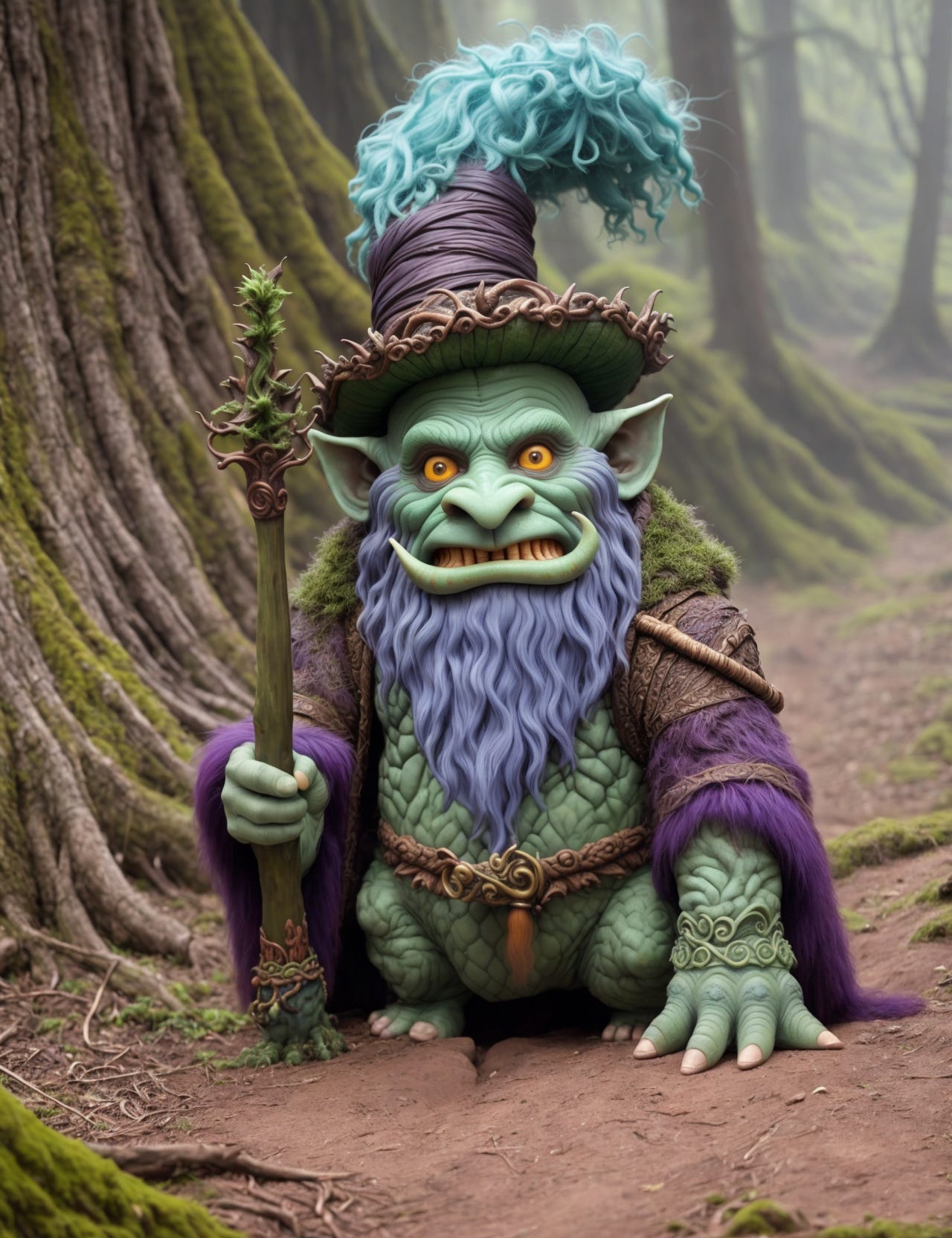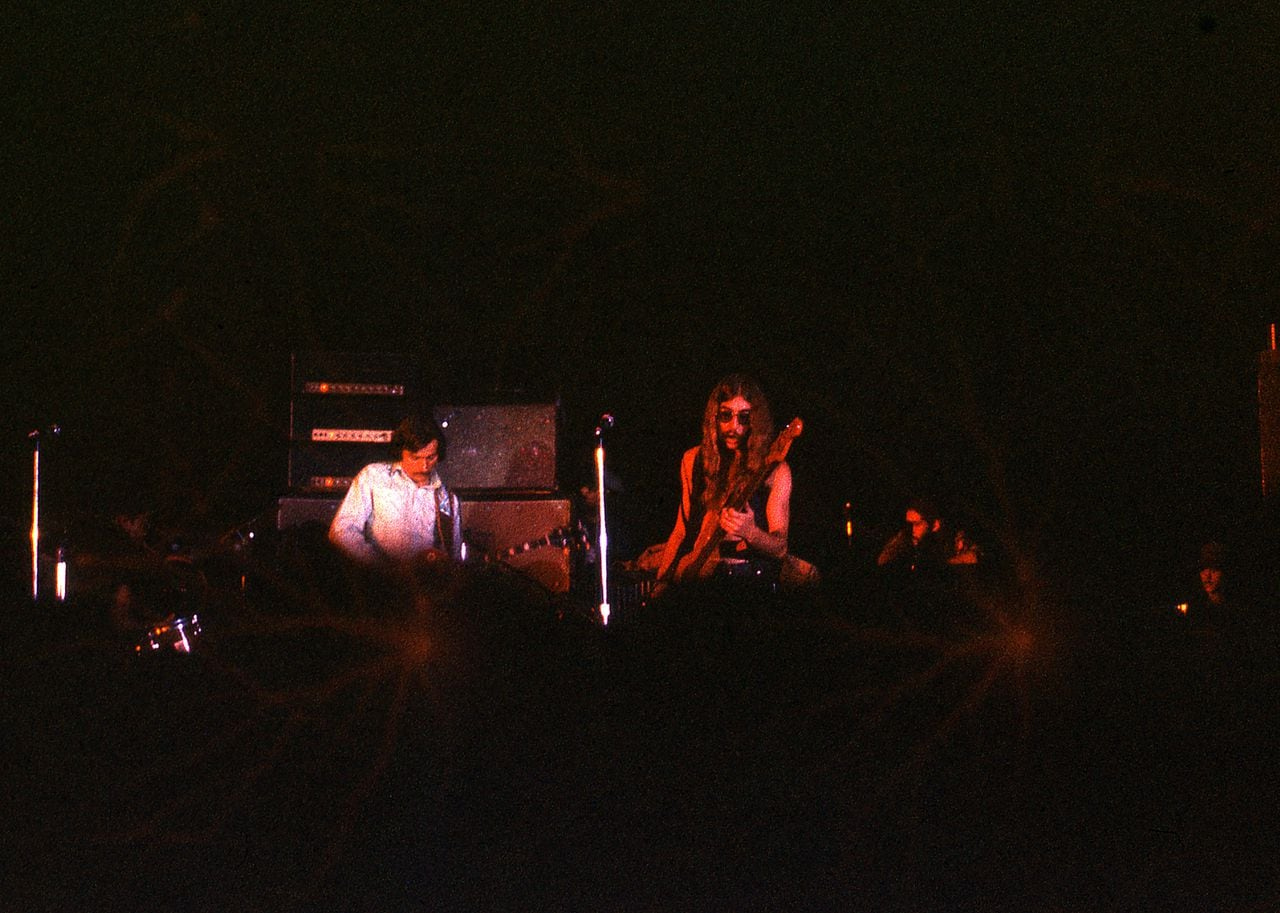Welcome back to another edition of Long Live the ABB: Conversation from the crossroads of Southern music, history, and culture.
Hello to my new subscribers.
and a
big,
HUGE
THANK YOU
to my paid subscribers.
I am truly grateful to have each of you here, but I truly appreciate the paid support. Writing seems easy (it’s not), and I do give it away for free for the most part. Paid content is minimal at this point, so y’all are supporting my ability to write for a much larger audience than I could do on my own.1
The Unending Conversation
I’ve written about the Unending Conversation a number of times. It’s a concept I learned in my first graduate course: Modern Rhetorical Theory (University of Central Florida, summer 1997). I was just starting a master’s in technical writing and had little understanding of what “rhetorical” meant in the first place, much less “rhetorical theory.” And “modern”? Realizing I was an oval peg in a round hole in the English department,2 I switched to history the in the fall.
Here’s Kenneth Burkes’s theory:
Imagine that you enter a parlor. You come late. When you arrive, others have long preceded you, and they are engaged in a heated discussion, a discussion too heated for them to pause and tell you exactly what it is about. In fact, the discussion had already begun long before any of them got there, so that no one present is qualified to retrace for you all the steps that had gone before. You listen for a while, until you decide that you have caught the tenor of the argument; then you put in your oar. Someone answers; you answer him; another comes to your defense; another aligns himself against you, to either the embarrassment or gratification of your opponent, depending upon the quality of your ally's assistance. However, the discussion is interminable. The hour grows late, you must depart. And you do depart, with the discussion still vigorously in progress.3
Play All Night! Duane Allman and the Journey to Fillmore East4 is an example of the Unending Conversation, as are both of
books on the ABB. One Way Out was a major source for Play All Night. And Alan’s latest book, Brothers and Sisters, picks up right where Play All Night leaves off. 5Here’s an example specific to the Allman Brothers Band.
At Fillmore East was the ABB’s third entry into the Unending Conversation. It set a standard Eat a Peach (1972) had to live up to. Fillmore hit #13, Eat a Peach #4.
Brothers and Sisters, the band’s fifth album, had to contend with those previous expectations. And like its predecessor, it was issued in the wake of yet another tragic death: Berry Oakley.
The record continued their momentum. It was their 3rd consecutive Gold album and reached #1.
Win, Lose, or Draw, its successor was an ABBsolute flop. (And this is despite having “High Falls” one of the most beautiful tunes in the canon6). Though the album spent 14 weeks on the charts and hit #5, it was a failure. “Shipped Platinum, returned Gold,” is one way Phil Walden put it.7

Here’s another example of the Unending Conversation8
“What’s with the Mushrooms?”
My post last week, “What’s with the Mushrooms?” is is my most responded to post outside of “What Is Long Live the ABB?” (that one is in the Welcome email for all subscribers).
I used the ABB, popular culture, psychedelic mushrooms, the Santa Claus myth, and stories of one southern family (mine) to talk about something that’s really important to me: mental health.
I appreciate those of you who responded to me personally, particularly with my openness about my own struggles with anxiety9 and depression10 and a general malaise during the holiday season.
I also got a chance to discuss some of this recently on Dawn Renee Bova’s Catch Some SoulShine podcast. Here’s the episode:
More than anything, your responses were heartfelt and it’s always nice to know I’m not the only one. Ya tu sabes.
And remember call 988 if you are in any sort of crisis. You matter.
Social Media and the Unending Conversation
I learned really early, well before the days of social media, that people are real assholes online.
Social media just made it worse. Much worse.
One of the things the Unending Conversation demands is that its participants engage in discussion in Good Faith:
a spirit of openness and honesty, seeking to understand and learn
an understanding that conversation is not a zero sum game.11
You know who engages in bad faith online?
Trolls.
And since grade school, I learned to avoid trolls. I know they try to make them look cutsie, but this is what I see when I think of trolls.

And social media is full of trolls.
This is why I was reluctant to start social media accounts for my work as a historian of southern music, history, and culture.
Far too long I had witnessed people in my life be absolute jackasses to others online, arguing ridiculous and easily refutable talking points.
As a dude who spent two five-year stints in graduate school (1997-2002 and 2013-2018) honing my rhetorical chops, this sort of stuff drove me nuts.
In history grad school, we sit around a conference table and pontificate about all manner of subjects.
Rarely did the professor interject.
If someone said something stupid, you either called it out, or you kept it to yourself and determined not to make the same mistake.12
I fell into the latter camp a majority of the time in grad school and, frankly, in life. I have no need to shame anyone else, nor foist my opinions on other people.
Sometimes I ask myself one simple question: “Why?” And it leads me to things like this post.
Finding the why.
To learn about the present condition, you have to ask why. And you have to learn to communicate that why. As I teach my students, it’s not enough to say, “Beatty argues, ‘The ABB played Black-influenced music authentically.13’” Asking “why” helped me articulate what that statement means.
And you should ask “why” in a spirit of good faith.
Social media is a pit of bad faith approaches. The one that bugs me the most is “Whatabout?”
Nearly every commenter on any thread could’ve answered his14 own question by asking “Why?” to their own “Whatabout?” as many times as needed until the right question emerges.
Doing that little bit of prep work is one way to engage in good faith conversation. Ask yourself your own questions first.
Of all of the Long Live the ABB social media accounts,15 Facebook is by far my biggest audience—19,000+ as I write this. The past couple of weeks have seen an uptick in engagement on Facebook and it really gave me the opportunity to examine my own social media use vis-a-vis the Unending Conversation.
I really never intended to do much more than post cool Allman Brothers-related shit on the accounts. I’m not diving deep into analysis—I was (and am) trying to drive attention to Play All Night and to this blog.
On Facebook—typically a pit of vipers—I’ve watched a small community of folks grow to engage deeply with some of the quotes I’ve been sharing.
People have pushed back on some of my quotes, and it’s given me a chance to examine my own understandings and engagement in the Unending Conversation.
“Cream…were the first band to really get into improvisation”
Earlier this year I shared this quote from Butch Trucks.16 I had a fair amount of comments about it, many of them listing every group they could think of that improvised as an example of where Butch has it wrong.
I’m going to overlook that the Cream reference is the least interesting part of this quote—“You can do THAT with music” is one of my all-time favorite Butch Trucks quotes.
Instead, I asked “Why?”
Why is this quote definitive for Butch Trucks, the ABB, and to my understanding of the Allman Brothers Band? (“Why” also helps me answer the other question that came up: “Whatabout the Grateful Dead?”)
Why Cream?
I’ll start with that first part, why does Butch say Cream opened the door for the ABB?
First, Cream was a HUGE influence on ALL of the original Allman Brothers except Jaimoe. And Eric Clapton influenced pretty much every guitarist of his era, including Dickey and Duane.
Second, Cream was on Atlantic Records, whose vice president Jerry Wexler was partners with Duane’s manager Phil Walden. They bought out Duane’s contract with Rick Hall and co-founded Capricorn Records, which was an Atlantic subsidiary.
Third, Cream was one of the best-selling bands in the world until their acrimonious breakup. Add in Led Zeppelin (also on the label), and Wexler understood that blues-based rock music would sell.
Taking a chance on someone as talented as Duane Allman was a no-brainer.
Now, I know this because I’m an obsessive about this stuff (and it was vital to my understanding of At Fillmore East as an artistic statement).
I can’t expect my social media followers to know these things, and I’m not in the habit of sharing any analysis on Facebook. Instead I shared it with y’all.
Whatabout the Dead, Paul Butterfield Blues Band, etc.?17
The easiest answer to this one is to say, “Whatabout is doing a MASSIVE lift here. This is Butch Trucks’s understanding about his own life. The Dead, Butterfield, et al. didn’t factor into the discussion.”
Because honestly, y’all, this is really the only answer to that question when you ask yourself why?
“Because Butch Trucks is not the definitive source for all information about improvisational music.”
Butch is a source—but this quote speaks for Butch’s and his band’s experience.
Digging deeper, however, listing other bands that were equally improvisational gave me pause.
Whatabout the Dead? Though the Dead did influence the ABB a great amount (not so much Butch), this one’s pretty easy. The Dead were not commercially successful by any measure. And their live improvisations didn’t see release until Live/Dead.
Whatabout Butterfield? Yes, East-West was a huge influence, but the PBB laid down few (any?) of their wild improvisations on vinyl. Butterfield’s live sound doesn’t matter in the formation of the Allman Brothers Band.
This is just my quick take, and your mileage may vary. There may be other reasons of course, and reasons why the Dead and Paul Butterfield Blues Band are essential to improvisational approaches in American rock music.
Answering the why…
is key to understanding why Butch isn’t wrong when he calls Cream “the first band to really get into improvisation.”
Asking whatabout [FILL IN THE BLANK] as *the* first band to improvise ignores the rest of the quote:
Cream opened the door to what we did. They were the first band to really get into improvisation. They were an absolute necessity to what came later. Without them, you don’t get us.
Then you add the money shot:
Then Jaimoe introduced us to John Coltrane, Miles Davis and Charlie Parker. Once we started listening to them, we said,
"My God, you can do THAT with music.”
My interpretation of Butch’s quote is this.
From his understanding:
“Cream was an important influence to the ABB. We added jazz to that formula and that’s what made the difference.”
Butch doesn’t mention that Cream and the ABB were both part of Atlantic Records, that’s my interpretation.
Bringing it all home
I’m not in the business of providing too much free content to our social media overlords, so my FB page just focuses on the quotes for the most part, this insight is just for y’all, my loyal readers.
I’ve gone super-granular here, if only to show you how this historian works through sources and answers questions.
The “Why” has served me well in the Unending Conversation, which has also made my life at the crossroads of Southern music, history, and culture infinitely more interesting.
And it’s always a good reminder to me why I reject an instinctive “Whatabout” from anyone. That’s a question I always try to answer for myself first.
Langiappes
ABB just released the first 5-man band show I ever traded for (1996/7): 4/7/72 Manley Fieldhouse, Syracuse, NY. Here’s some backstory: “Broken glass, dust and heartache: The untold story of the Allman Brothers’ 1972 concert at Syracuse University.”
Long Live the ABB reader
was involved in the event and we’re gonna have a chat about it very soon.
Podcast recommendations
Catch Some SoulShine. Yep, named after Reverend Brother Warren Haynes’s “Soulshine.” Dawn’s entire social media presence is a joy, actually.
Principal Liner Notes. This one has been a joy since I discovered it. Like Dawn Bova above, Sean Gaillard is like a breath of fresh air. Plus, the man is a SERIOUS fan of the Beatles. (And the ABB, if you listen to our interview.)
Rock Talk Studio. Big Rick has my favorite rock & roll book podcast since Rock & Roll Bookclub.18 And Play All Night! made his “Best of 2023” list—the first best of list I’ve ever made.
Can’t name a post after a Beatles’ song and not make it easy for y’all to listen. You’re welcome.
If you liked this post, please share it with at least one person
Thanks for reading.
2,000 and counting here on Substack.
Still round, just not a fit.
As a Long Live the ABB reader, I know you have already bought a copy, but have you bought one for a friend yet? I’ll make it easy for you:
Alan and I didn’t plan this. Just #mushroommagic in action.
I put a link in the text, but you might’ve missed it. I’m putting it here to remind you to listen to “High Falls” asap. Holy shit what a gorgeous instrumental.
Meaning they sent out 1 million units and half a million were returned.
It’s time to call Substack posts blogs. I’m Bob Beatty and I approve of this message.
Often, though meditation and medication help tamp it down.
Rarely. Though looking back I realize I had about an 18-month about of genuine depression beginning summer 2020-ish.
I reserve the right to come up with another definition at a later time.
For example, my first graduate history class (on the New South—roughly post-Civil War through the 1960s) someone advocated for chain gangs as “people learning a skill.” I remember thinking, “Picking up trash isn’t a skill.” I instead decided it was “better to remain silent and be thought a fool than to speak and to remove all doubt.” An adaptation of Proverbs 17:28, also attributed to Mark Twain and Abraham Lincoln. My source. BTW, I think often of that encounter, and who out there remembers me saying something similarly stupid.
I do. And Jaimoe says so too.
Nearly always a dude.
I even got Big Brother & the Holding Company. No shit. My answer was, “They couldn’t play.” Which is true, even though I love them very much as a psychedelic garage band.
Rip. A truly fun podcast that actually helped me think about how I approached writing Play All Night.







